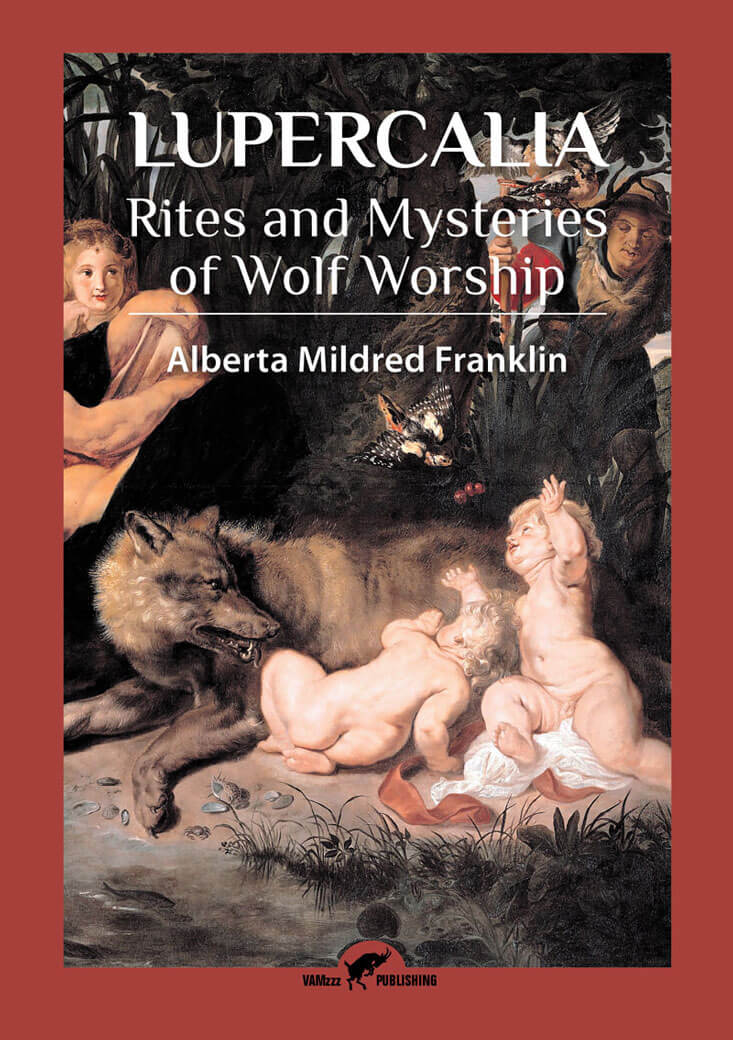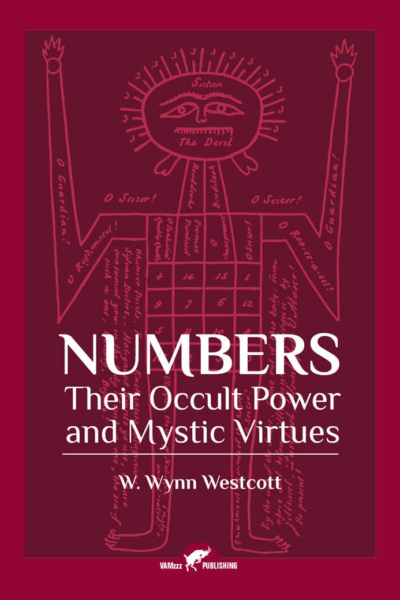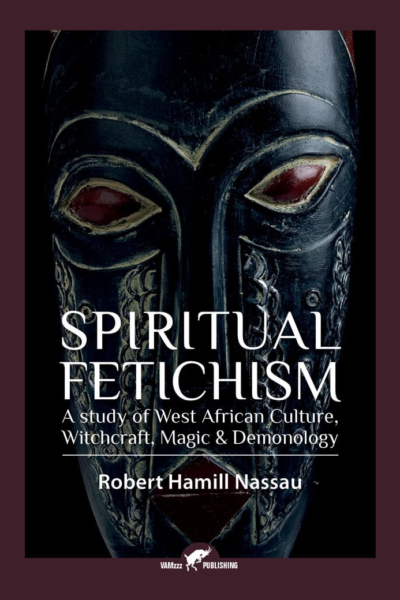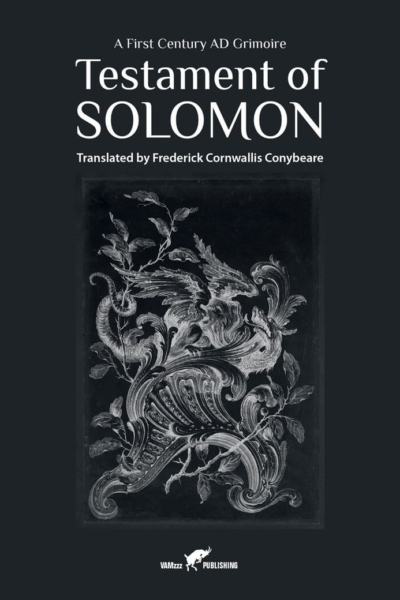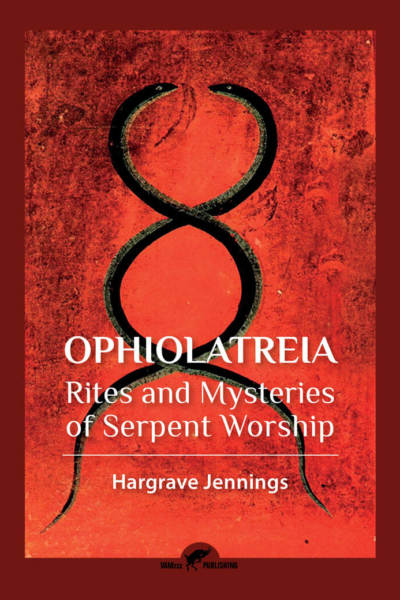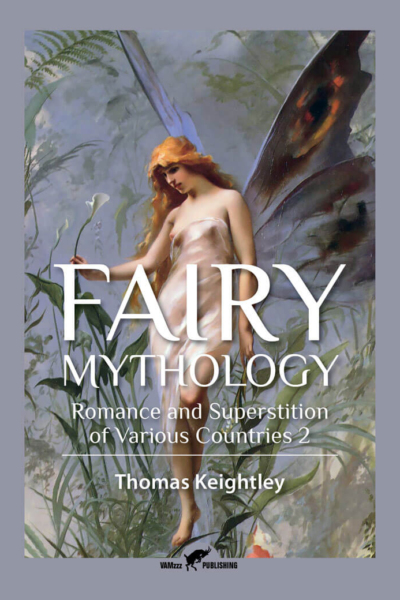Beschrijving
Rites and Mysteries of Wolf Worship
Lupercalia (derived from lupus: wolf) was the name of a very ancient, pre Roman pastoral, held in the city of Rome, each year, on February 15, to avert evil spirits and purify the city, releasing health, productivity and fertility. The Romans, associated many deities with the Lupercalia: Lupercus, Faunus, lnuus, Februus, and, but frequently than any other Roman god, Pan or Pan Lycaeus (Pan Wolf). The festival was also known as Februa or Februatus and gave its name to the goddess Juno Februa(ta) and the month February.
Alberta Mildred Franklin was a Professor of Latin and Greek. Lupercalia is the first substantial work on the case, the least known and still seen as one of the best. Apart from the wolf, her work also deals with two other Lupercalian ingredients: the goat and goat-god Pan and the dog. She compares the mystic and ritual role of these animals in both primitive Greece and Rome.
The wolf-deity of the Greeks was Pelasgian, represented the devouring power of the underworld, and was worshipped by rites of expiation. The wolf-deities of Italy, among them Lupercus, were dreaded chthonic powers, and had several cults in the Mediterranean regions. The goat, representing fertility, was sacrificed to Lupercus. The dog-cults were mainly for purification, of Thracian origin, and the Romans borrowed them from the Greeks of Southern Italy and Sicily.


